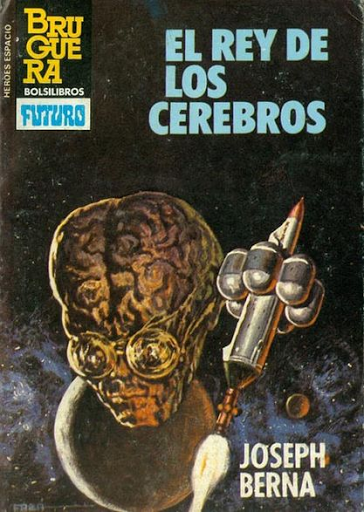For all its enormous success in other media, The Hitchhiker’s Guide to the Galaxy was – for my money – at its best as a radio series.

The BBC is currently six weeks into its first repeat in a decade of Douglas Adams’ seminal radio show. The first episodes were recorded in January 1978, when Star Wars was just arriving in UK cinemas and Blake’s 7 was debuting on TV, and yet they remain just about as fresh and funny as ever.
A couple of things strike me forcefully about the Hitchhiker radio shows today. The first is that Adams clearly had very little idea, at the outset, where his story was heading. Peter Jones’ narration tells us in episode one that “To tell the story of the book, it’s best to tell the story of some of the minds behind it”, but the ensuing story has very little to do with researching the titular Guide.
The second – and more important – thing that strikes me is how full of great ideas Hitchhiker was.
Back in 1978, the first time listener might have been expecting to hear a science fiction parody, but Hitchhiker is never that. In fact, I can only think of one occasion when Adams succumbs to the temptation to poke fun at another work of the genre, and that’s in the narrator’s reference to boldly splitting infinitives that no man has split before.
Instead of a parody, Hitchhiker’s is a comedy filled with ideas that are as weighty and well thought-out as the premise of many a serious work of science fiction, but which also happen to be very funny.
Adams was not a writer who could follow the conventions of his genre without questioning them. So rather than invite the audience to just accept that every species in his story spoke English, he had to invent an explanation for his characters being able to understand each other. Thus was born the Babel fish – the creature that lives in characters’ ears and translates for them, and which serves as the starting point for an amusing skit about logical arguments for and against the existence of God.
When Adams wrote himself into a corner by having his characters flushed out of an airlock into deep space, he agonised about the improbability of them being rescued, before deciding to turn his problem to his own advantage by inventing a spaceship powered by improbability.
And then there is the Ultimate Answer to Life, the Universe and Everything. Some time ago, I heard a radio documentary about Theories of Everything and string theory. Before it lost me entirely, the documentary made the point that one of the problems with such theories was the difficulty in pinning down exactly what problem they were attempting to solve. It was impossible not to be reminded of one of Hitchchiker’s most memorable ideas – the super-computer that takes 7.5 million years to answer life’s ultimate question, only for the answer to prove meaningless because no one knows the question.
In Adams’ story, the Earth itself is revealed to be a super-computer designed to work out that question, with organic life itself forming part of its processes. That, surely, is an idea good enough to feature in a serious work of SF.
 In the second radio series (one of the most enjoyable and overlooked parts of Hitchchiker, for me), the comedy is often more directly satirical and less related to ‘serious’ SF. Adams turned his own frustrating experience of a much-delayed short-distance air journey into an episode about a spaceship whose whose passengers have been in suspended animation for millennia while the crew await the delivery of paper napkins. After being frustrated at not being able to buy a properly fitting pair of shoes on London’s Oxford Street, Adams devised the idea of a race who had evolved into birds after their economy was wrecked by the spread of shoe shops selling painful footwear. But occasionally, the show still drew on some more familiar SF themes – for example, in the character of Lintilla, who has been cloned untold millions of times because the cloning machine is running too fast and no one can turn it off without committing murder.
In the second radio series (one of the most enjoyable and overlooked parts of Hitchchiker, for me), the comedy is often more directly satirical and less related to ‘serious’ SF. Adams turned his own frustrating experience of a much-delayed short-distance air journey into an episode about a spaceship whose whose passengers have been in suspended animation for millennia while the crew await the delivery of paper napkins. After being frustrated at not being able to buy a properly fitting pair of shoes on London’s Oxford Street, Adams devised the idea of a race who had evolved into birds after their economy was wrecked by the spread of shoe shops selling painful footwear. But occasionally, the show still drew on some more familiar SF themes – for example, in the character of Lintilla, who has been cloned untold millions of times because the cloning machine is running too fast and no one can turn it off without committing murder.
Science fiction has inspired plenty of mockery over the years. I’m sure we’ve all seen countless sketches parodying Star Trek, for example. But real science fiction comedy – comedy that takes an SF premise and mines it for laughs – is hardly ever seen on screen or, indeed, on radio.
In the relatively early days of Hitchhiker’s success, Adams was proud of turning down a financially tempting offer from producer Ivan Reitman for the film rights. He felt Reitman wanted to make “Star Wars with jokes”. Hitchhiker was never that; and perhaps Adams set the bar so high with those first two radio series that very few people ever dared follow.
Editor’s Note: The BBC has a fair number of THGTTG resources and the original radio play can be listened to on YouTube.)









